Intro
Identify early Covid symptoms, including fever, cough, and fatigue, to prevent spread and seek timely treatment, understanding coronavirus signs and respiratory issues.
The COVID-19 pandemic has been a global health crisis, affecting millions of people worldwide. The virus, caused by the SARS-CoV-2 strain, can lead to a range of symptoms, from mild to severe. Recognizing the early symptoms of COVID-19 is crucial for prompt medical attention, reducing the risk of complications, and preventing the spread of the virus. In this article, we will delve into the early symptoms of COVID-19, their characteristics, and the importance of seeking medical help.
The early symptoms of COVID-19 can be similar to those of the common cold or flu, making it challenging to diagnose the virus based on symptoms alone. However, being aware of the possible symptoms can help individuals take necessary precautions and seek medical attention if they experience any of the following: fever, cough, fatigue, shortness of breath, or difficulty breathing. These symptoms can range from mild to severe and may develop gradually over several days.
The COVID-19 pandemic has highlighted the importance of global health security, international cooperation, and individual responsibility in preventing the spread of infectious diseases. By understanding the early symptoms of COVID-19 and taking prompt action, individuals can play a vital role in reducing the transmission of the virus and protecting vulnerable populations, such as the elderly and those with underlying health conditions. In the following sections, we will explore the early symptoms of COVID-19 in more detail, discussing their characteristics, severity, and the importance of seeking medical attention.
Characteristics Of Early Covid Symptoms
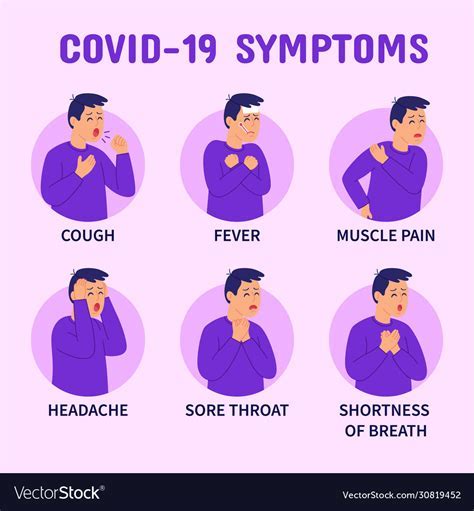
The early symptoms of COVID-19 can be divided into two categories: common and severe. Common symptoms include fever, dry cough, fatigue, headache, sore throat, runny nose, and diarrhea. Severe symptoms, on the other hand, include difficulty breathing, chest pain, confusion, and bluish discoloration of the lips or face. It is essential to seek medical attention immediately if you experience any of the severe symptoms.
Common Early Covid Symptoms
The common early symptoms of COVID-19 can be similar to those of other respiratory illnesses, making it challenging to diagnose the virus based on symptoms alone. However, being aware of the possible symptoms can help individuals take necessary precautions and seek medical attention if they experience any of the following: * Fever: A high temperature, usually above 100.4°F (38°C), can be an early symptom of COVID-19. * Dry cough: A dry, persistent cough can be an early symptom of COVID-19, often accompanied by a sore throat. * Fatigue: Feeling tired or exhausted can be an early symptom of COVID-19, even after getting plenty of rest. * Headache: A headache can be an early symptom of COVID-19, often accompanied by a fever or fatigue. * Sore throat: A sore throat can be an early symptom of COVID-19, often accompanied by a dry cough.Severe Early Covid Symptoms
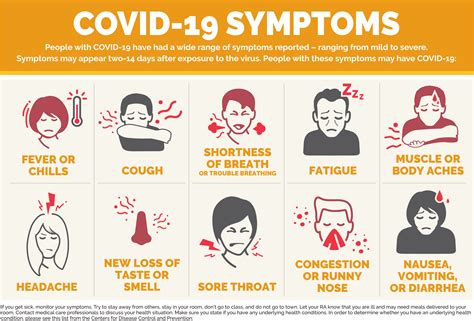
Severe early symptoms of COVID-19 require immediate medical attention. These symptoms can include:
- Difficulty breathing: Shortness of breath or difficulty breathing can be a severe symptom of COVID-19, requiring immediate medical attention.
- Chest pain: Chest pain or pressure can be a severe symptom of COVID-19, often accompanied by difficulty breathing.
- Confusion: Confusion or disorientation can be a severe symptom of COVID-19, often accompanied by a high fever or difficulty breathing.
- Bluish discoloration: Bluish discoloration of the lips or face can be a severe symptom of COVID-19, indicating a lack of oxygen in the blood.
Importance Of Seeking Medical Attention
Seeking medical attention promptly is crucial if you experience any of the early symptoms of COVID-19. Early diagnosis and treatment can help reduce the risk of complications, such as pneumonia, acute respiratory distress syndrome, or multi-organ failure. Additionally, seeking medical attention can help prevent the spread of the virus to others, particularly vulnerable populations, such as the elderly and those with underlying health conditions.Diagnosis And Treatment Of Covid
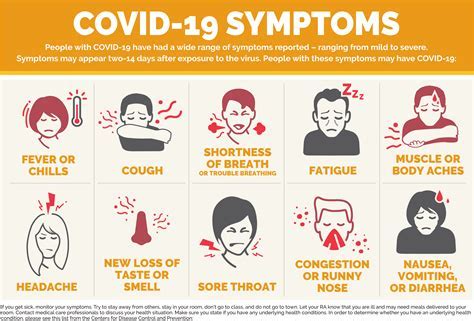
Diagnosing COVID-19 typically involves a combination of physical examination, medical history, laboratory tests, and imaging studies. Laboratory tests, such as PCR (polymerase chain reaction) or antigen tests, can detect the presence of the SARS-CoV-2 virus in respiratory specimens, such as nasopharyngeal swabs or saliva. Imaging studies, such as chest X-rays or CT scans, can help evaluate the extent of lung involvement and detect any complications.
Treatment for COVID-19 typically focuses on relieving symptoms, supporting the body's immune response, and preventing complications. Supportive care, such as rest, hydration, and nutrition, can help manage mild symptoms. Antiviral medications, such as remdesivir or lopinavir/ritonavir, may be prescribed to reduce the severity and duration of symptoms. In severe cases, hospitalization may be necessary to provide oxygen therapy, mechanical ventilation, or other life-supporting interventions.
Prevention And Control Measures
Preventing the spread of COVID-19 requires a combination of individual and community efforts. Individual measures, such as: * Practicing good hygiene, including frequent handwashing and proper respiratory etiquette * Wearing masks or face coverings in public places * Maintaining social distancing, at least 6 feet apart * Avoiding close contact with individuals who are sick can help reduce the transmission of the virus. Community measures, such as: * Implementing stay-at-home orders or lockdowns * Closing non-essential businesses or public gatherings * Promoting vaccination efforts can help slow the spread of the virus and protect vulnerable populations.Covid Vaccination And Immunity
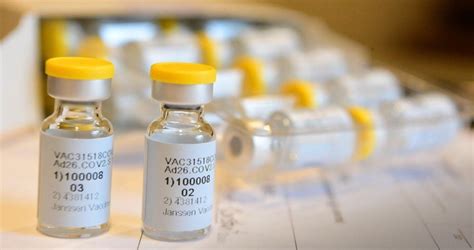
COVID-19 vaccination is a crucial step in preventing the spread of the virus and protecting individuals from severe illness. Vaccines, such as the Pfizer-BioNTech, Moderna, or Johnson & Johnson vaccines, can help stimulate the body's immune response, producing antibodies that recognize and neutralize the SARS-CoV-2 virus. Vaccination efforts have been instrumental in reducing the transmission of the virus, particularly among vulnerable populations, such as healthcare workers, older adults, and those with underlying health conditions.
Immunity And Reinfection
Immunity to COVID-19 can be achieved through vaccination or natural infection. However, the duration of immunity and the risk of reinfection are still being studied. It is essential to continue practicing preventive measures, such as wearing masks and maintaining social distancing, even after vaccination or recovery from COVID-19, to reduce the risk of transmission and protect vulnerable populations.Covid And Mental Health
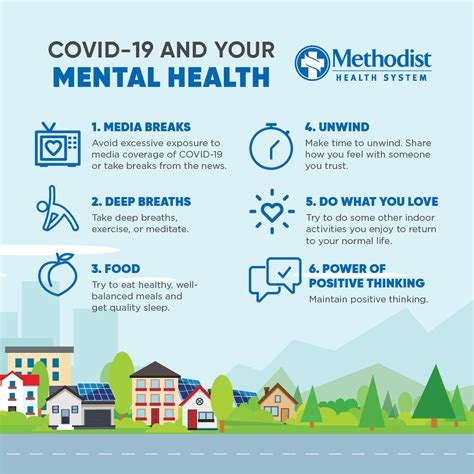
The COVID-19 pandemic has had a significant impact on mental health, with increased reports of anxiety, depression, and post-traumatic stress disorder (PTSD). The pandemic has disrupted social connections, economic stability, and daily routines, leading to feelings of isolation, uncertainty, and fear. It is essential to prioritize mental health, seeking support from mental health professionals, friends, and family members, and engaging in stress-reducing activities, such as exercise, meditation, or hobbies.
Mental Health Resources
Mental health resources, such as hotlines, online support groups, and counseling services, can provide individuals with the support and guidance they need to cope with the emotional and psychological impact of the pandemic. It is essential to seek help if you experience any of the following: * Persistent feelings of sadness or hopelessness * Difficulty sleeping or concentrating * Increased anxiety or fear * Avoidance of social interactions or activitiesCovid And Chronic Conditions

The COVID-19 pandemic has highlighted the importance of managing chronic conditions, such as diabetes, hypertension, and heart disease. Individuals with chronic conditions are at increased risk of severe illness and complications from COVID-19, making it essential to prioritize preventive measures, such as vaccination, social distancing, and proper hygiene. Additionally, individuals with chronic conditions should work closely with their healthcare providers to manage their conditions, monitor their symptoms, and adjust their treatment plans as needed.
Chronic Condition Management
Managing chronic conditions during the pandemic requires a proactive approach, including: * Regular health check-ups and monitoring * Adherence to medication regimens * Healthy lifestyle habits, such as a balanced diet and regular exercise * Stress management techniques, such as meditation or deep breathing * Open communication with healthcare providers and support systemsWhat are the common early symptoms of COVID-19?
+The common early symptoms of COVID-19 include fever, dry cough, fatigue, headache, sore throat, runny nose, and diarrhea.
How can I prevent the spread of COVID-19?
+Preventing the spread of COVID-19 requires a combination of individual and community efforts, including practicing good hygiene, wearing masks, maintaining social distancing, and getting vaccinated.
What should I do if I experience severe symptoms of COVID-19?
+If you experience severe symptoms of COVID-19, such as difficulty breathing, chest pain, or confusion, seek medical attention immediately.
Can I get reinfected with COVID-19 after recovery or vaccination?
+The risk of reinfection with COVID-19 after recovery or vaccination is still being studied, but it is essential to continue practicing preventive measures to reduce the risk of transmission and protect vulnerable populations.
How can I prioritize my mental health during the pandemic?
+Prioritizing mental health during the pandemic requires seeking support from mental health professionals, friends, and family members, and engaging in stress-reducing activities, such as exercise, meditation, or hobbies.
In conclusion, recognizing the early symptoms of COVID-19 is crucial for prompt medical attention, reducing the risk of complications, and preventing the spread of the virus. By understanding the characteristics of early COVID-19 symptoms, seeking medical attention, and prioritizing preventive measures, individuals can play a vital role in reducing the transmission of the virus and protecting vulnerable populations. If you have any questions or concerns about COVID-19, please do not hesitate to reach out to your healthcare provider or leave a comment below. Share this article with your friends and family to help spread awareness about the importance of COVID-19 prevention and management.
